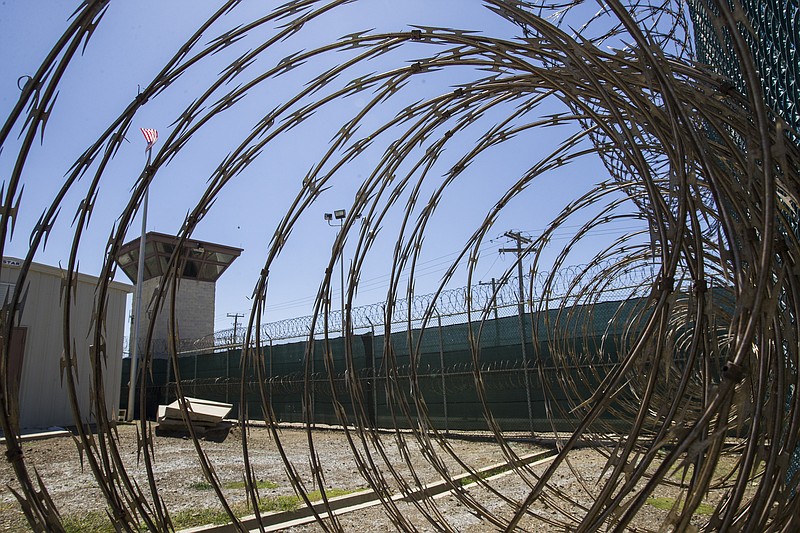WASHINGTON -- A military medical panel has concluded that one of the five 9/11 defendants held at the Guantanamo Bay naval base has been rendered delusional and psychotic by the torture he underwent years ago while in CIA custody.
The findings heighten uncertainty over whether Ramzi bin al-Shibh, who has long complained he was under attack by invisible rays at Guantanamo, will stand trial. A military judge, Col. Matthew McCall, is expected to rule as soon as Thursday whether al-Shibh's mental issues render him incompetent to take part in the proceedings against him.
Defense lawyers argue that the best hope of al-Shibh, a Yemeni accused of organizing one cell of the Sept. 11, 2001, hijackers, regaining competency to stand trial is a step that some Americans are likely to find distasteful: for him to be provided with post-torture trauma care and no longer subject to solitary confinement.
Al-Shibh's newly disclosed diagnosis -- post-traumatic stress disorder with secondary psychotic features -- is the latest development to show how the George W. Bush administration's approval of abusive interrogation of alleged al-Qaida attackers is complicating U.S. efforts to try the men more than two decades later.
On Tuesday, al-Shibh's lead attorney, David Bruck, told the courtroom that the diagnosis is creating "a moment of truth" and an opportunity for the country to take into account the harm that was done by allowing torture.
On Sept. 6, the White House said President Joe Biden had declined to approve or deny demands presented by defense lawyers in plea negotiations to settle the case. They were seeking guarantees that all five men would get care for the physical and mental damage of their torture, and would be spared solitary confinement going forward.
Al-Shibh's mental issues meant he was not included in the plea negotiations. Any future plea negotiations are on hold at least until the military commission gets a new presiding military official next month, lawyers said.
No trial date has been set for the five defendants after more than a decade of proceedings. Logistical challenges and legal questions have slowed the commission at Guantanamo. That includes the question of how much evidence has been rendered inadmissible by torture while they were in CIA custody. The case has had a succession of military judges, with the fourth announcing Tuesday that he will retire in April.
The Associated Press monitored the military commission's hearings in Cuba on Tuesday via a relay provided by the Pentagon.
Bruck pointed to what he said was al-Shibh's solitary confinement over four years in detention at CIA black sites, and torture that included his being forced to stand sleepless for as long as three days at a time, naked except for a diaper and doused with cold water in air-conditioned rooms, for the man's lasting belief that guards at Guantanamo were subjecting him to unseen attacks to deprive him of sleep.
Prosecutor Clayton Trivett and the judge acknowledged what they said were the man's persistent demands for an end to the invisible attacks over the years. Bruck estimated that al-Shibh's defense team spent as much as 90% of its time dealing with al-Shibh's mental challenges and trying to show him it was taking his complaints of invisible attacks seriously.
Al-Shibh is currently being held in disciplinary solitary confinement at Guantanamo, after staging a protest in his cell about the invisible attacks, Bruck said.
